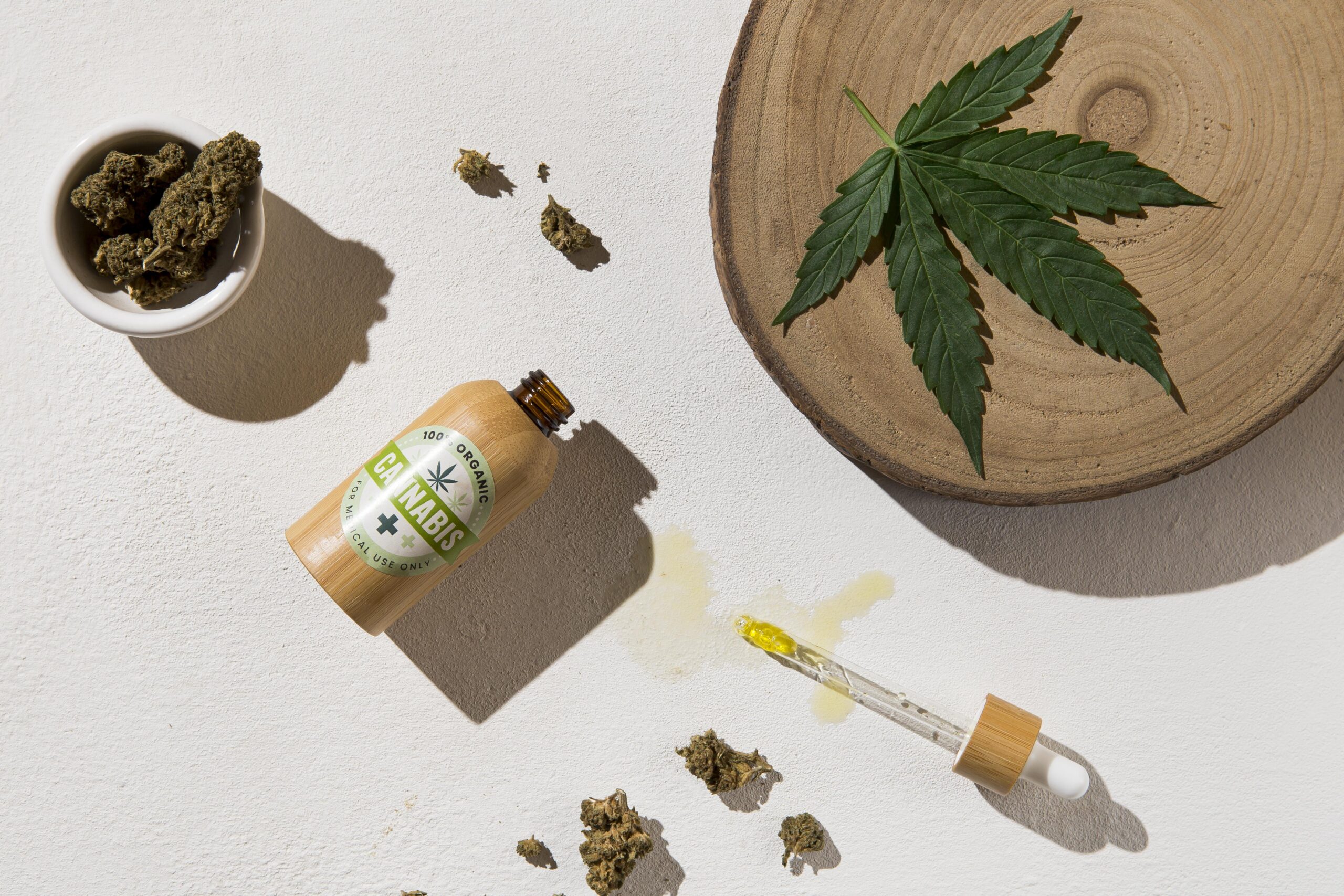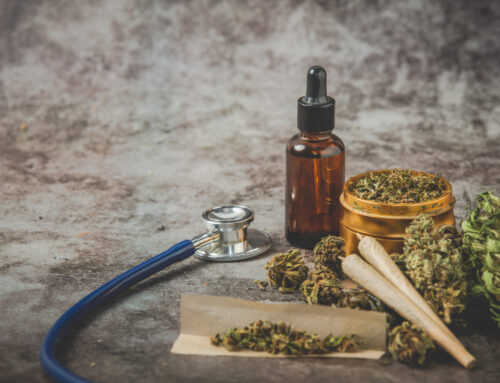Using weed or medical cannabis prior to plastic surgery is not safe and can lead to serious complications during and after the procedure. Whether you’re taking marijuana recreationally or using it as prescribed medical cannabis, it can complicate anaesthesia, slow recovery, and increase risks during surgery.
Now, this doesn’t mean cannabis has no value. In fact, medical marijuana is widely recognized for its therapeutic benefits from easing chronic pain to helping with chemotherapy-related nausea. But when it comes to plastic surgery, timing matters more than anything else. The body responds differently when anaesthesia and cannabis collide, and that’s where problems begin.
In this article, we’ll break down the full picture how cannabis affects the body, why it can be dangerous before plastic surgery, what experts recommend, and how to use medical cannabis responsibly in this context.
Why Talk About Cannabis and Plastic Surgery Together?
Weed and surgery might sound like two completely separate topics, but they’re connected more
than you’d expect. Here’s why
Cannabis is now mainstream. Millions of people use it daily, either for recreation or under medical supervision.
Plastic surgery is on the rise. From cosmetic enhancements to reconstructive procedures, more people are choosing to go under the knife.
Patients overlap. Many individuals’ considering plastic surgery are also cannabis users sometimes for anxiety relief, pain management, or sleep.
So, the question isn’t uncommon anymore: “Can you use medical marijuana before plastic
surgery?”
The straight answer is no it’s not safe: No. But the reasons deserve a closer look.
How Cannabis Works Inside Your Body
To understand why weed is risky before surgery, let’s quickly cover what it does inside the
body.
Cannabis contains compounds called cannabinoids mainly THC (tetrahydrocannabinol) and CBD (cannabidiol). These chemicals interact with your endocannabinoid system (ECS), which helps regulate mood, pain, memory, and immune responses.
THC is psychoactive it gives the “high” feeling and alters perception.
CBD is non-intoxicating but helps with relaxation, pain, and inflammation.
When you smoke, vape, or eat cannabis (edibles), these cannabinoids enter your bloodstream and influence:
Heart rate & blood pressure often rise temporarily.
Breathing & lung function can become slower or more irritated.
Central nervous system changes how your brain responds to other drugs, including anaesthesia.
And that’s exactly why weed can interfere with plastic surgery.
Medical Cannabis: Its Legit Uses
Let’s give cannabis the credit it deserves. Medical marijuana has become an accepted treatment for:
Chronic pain (arthritis, back pain, nerve pain).
Chemotherapy-induced nausea and vomiting.
Appetite loss in HIV/AIDS patients.
Anxiety and sleep problems.
Certain seizure disorders (like Dravet syndrome).
Doctors may prescribe FDA-approved cannabinoid medications like dronabinol or nabilone in specific cases. So yes, medical cannabis is valid and helpful.
But and it’s a big but the operating table is a different setting. What helps in one situation can be dangerous in another.
Why Cannabis Use Before Surgery is Unsafe
Now let’s talk about the risks. If you use marijuana before your plastic surgery, here’s what can
happen:
1. Complications With Anaesthesia Anaesthesiologists often need to give higher doses of anaesthesia to regular cannabis users. Why? Because your nervous system adapts to THC. While higher doses may keep you sedated, they also:
– Lower blood pressure too much.
– Delay awakening after surgery.
– Increase risk of irregular heart rhythms.
2. Heart & Lung IssuesCannabis isn’t kind to your cardiovascular system during surgery. Weed raises heart rate and blood pressure, which can trigger arrhythmias (irregular beats). Smoking cannabis irritates the lungs, leading to coughing or blocked airways under
anaesthesia.
When oxygen supply drops, your body takes longer to heal and that also means a higher chance of infections creeping in.
3. Unpredictable Drug Interactions Plastic surgery involves multiple drugs sedatives, opioids, antibiotics. Cannabis can intensify or dull their effects, creating confusion for doctors For example, when cannabis is mixed with opioids, it can push your body into deeper sedation and leave you feeling dangerously dizzy something doctors try to avoid during and after surgery.
Edibles hit the body differently than smoking, which makes dosing way more complicated. Simply put your surgeon and anaesthesiologist can’t keep you 100% safe unless they know about your cannabis use.
What Surgeons and Experts Say (What cannabis doctor and researcher say)
Organizations like the American Society of Anaesthesiologists (ASA) and ASRA Pain Medicine have made their stance clear:
Day of surgery: Do NOT use cannabis.
72 hours before surgery: Stop smoking, vaping, or consuming edibles.
Chronic users: You may need to quit weeks in advance.
Their reasoning is simple anaesthesia and weed together make surgery more unpredictable.
Talking to Your Medical Team About Cannabis
Consult with your medical marijuana doctor about Cannabis
This is where honesty saves lives. If you use cannabis recreationally or medically your medical team needs to know. Your surgeon or anaesthesiologist may ask things like:
Do you smoke, vape, use oils, or take cannabis edibles?
How often and how much marijuana do you use?
When did you last use it?
Is it medical cannabis prescribed for pain or anxiety?
Do you use THC or CBD specifically?
Answering these questions openly allows them to adjust anaesthesia, monitor withdrawal, and plan safe pain management after surgery.
Skipping the truth here is a dangerous gamble.
Weed After Plastic Surgery: Should You Resume?
Another common question: “Can I smoke weed after my plastic surgery?”
Doctors usually recommend waiting. Smoking cannabis too soon after surgery:
Slows wound healing.
Increases coughing and bleeding risk.
Interferes with painkillers.
Can lead to infections due to poor oxygen supply.
If you rely on medical cannabis daily, your doctor may recommend waiting until your body has cleared anaesthesia and pain medications before resuming.
Alternatives to Cannabis During Recovery
If you’re anxious about giving up weed before your surgery, there are alternatives. Doctors may suggest:
Non-cannabis medications can manage nausea, anxiety, or sleep problems before surgery. Relaxation techniques like meditation, deep breathing, or guided imagery reduce stress and support healing.
In some cases, FDA approved cannabis-based medications such as dronabinol, but only if your surgeon or medical marijuana doctor confirms they’re safe to use around surgery.
These methods ensure your surgery and recovery remain smooth, without cannabis interfering.
Plastic Surgery and Cannabis: A Unique Connection
Here’s something many people don’t realize: plastic surgery has its own unique risks with cannabis. Cosmetic procedures often depend on:
Precise wound healing. Cannabis slows this process.
Minimal scarring. Poor oxygenation from smoking weed worsens scarring.
Stable anaesthesia. Weed users may wake up mid-procedure or require unpredictable dosing.
So, while you may think “It’s just a nose job” or “only liposuction” the risks are still very real if cannabis is involved.
Things to Remember
Weed, cannabis, or marijuana use before plastic surgery is unsafe.
72 hours of no cannabis is the minimum safe window.
Medical cannabis is helpful in many conditions but needs to be paused for surgery.
Always disclose cannabis use to your doctor or anaesthesiologist.
Explore safe alternatives for pain and anxiety during your surgical journey.
The Bottom Line
Medical cannabis is not the enemy. Weed has genuine medical benefits and is improving lives every day. But surgery is a special case where cannabis becomes a risk.
If you’re preparing for plastic surgery, your best move is transparency and caution. Be upfront with your doctors, pause marijuana use when advised, and focus on safe recovery.
For those who rely on cannabis long-term, professional support is available. Providers like Ezmedcard.com help patients navigate safe medical cannabis use, even when surgeries or other medical procedures are involved.
At the end of the day, the goal of plastic surgery isn’t just to look better it’s to stay healthy and safe while doing it. And that means making smart, informed choices about cannabis use along the way.





